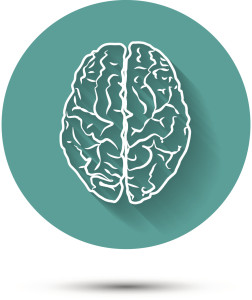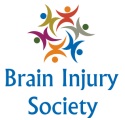
When someone becomes the victim of a traumatic brain injury (TBI), his post-injury abilities and chances for a successful recovery will depend in great part on the severity and location of the injury. That’s because different areas of the brain are responsible for different functions. So, depending on where the brain has been injured, the victim could lose his sense of touch, hearing, ability to focus or balance, and even his personality could drastically change. A brain injury certainly can impact a person’s life in countless ways, but if the more than 3 million people in the United States who are living with a brain injury are any example, life post-injury can be successfully managed.
The Importance of Injury Location
The brain is divided in different ways. When divided down the middle, the left and right sides of the brain control different functions.
The left side of the brain controls reasoning and logic. It is the area of the brain responsible for precision, identifying and analyzing details, and it helps us with repetition and organization. When a traumatic brain injury affects the left side of the brain, the victim may develop impaired logic, the ability to speak and understand language may be impaired, and he may have difficulty controlling the right side of his body.
The right side of the brain is responsible for a person’s creativity, imagination, intuition, ability to conceptualize ‘the big picture’, emotions, and present experiences. Damage to the right side of the brain can create visual-spatial impairment, changes in creativity, loss of a person’s ability to conceptualize, and loss of control over the left side of the body.
The brain is also further divided into sections, or lobes, each with its own set of functions.
- Occipital lobe: Controls vision/
- Parietal lobe: Controls spatial and visual perception, sense of pain and touch, and the ability to differentiate colors, shapes and sizes.
- Frontal lobe: Controls focus, concentration, speaking, organization, personality, judgment, motor planning and initiation, and inhibition of behavior, among others.
- Temporal lobe: Controls ability to understand language, hearing, memory, organization, and sequencing.
- Cerebellum lobe: Controls motor activity, balance, visual perception, and coordination.
Although it is not a lobe, the brain stem is also vital. It controls the heart rate, breathing, consciousness and arousal, the sleep and wake cycles, and the ability to concentrate and focus. The pons is also critical, as it is where many of the eye and facial muscle controls are housed.
The New Normal
As evidenced by the different functions of the various sections of the brain, there are countless possible outcomes of a traumatic brain injury. Learning how to manage any permanent changes in ability and behavior is key to the quality of life for TBI victims. Patience with yourself, and building a personal and professional support network are critical to a successful recovery, especially directly after the injury when you still haven’t reached your full potential.
If concentration and attention are areas of concern, decrease the distractions you have to contend with by doing any activity that requires concentration in a quiet room. Also, don’t try to multi-task. Focus on one task at a time, and start practicing ‘attention skills’ when engaging in once simple activities, like reading. As you progress, increase the difficulty level of your tasks. For example, evolve from reading a paragraph to reading a short story or answering a couple of crossword puzzle questions.
If you find that you’re having difficulty understanding and processing information post-TBI, take notes on what you read and hear, allowing yourself as much time as is necessary to do so. Ask people to repeat what they have said more slowly or in a different way, if necessary, and repeat back what you heard.
Remembering steps, organizing and planning, and learning new information is often a challenge, but strategically placed lists can help jog your memory about new and once-familiar tasks that need to be done, and how to do them. Set aside time to regularly practice and review tasks and any new information you’ve gathered. Get plenty of rest and discuss with your doctor how any medications you’ve been prescribed can be impacting your memory.
Life after a traumatic brain injury can be dramatically different for the victim and his family. Significant adjustments are sometimes necessary, but in no way does that mean that quality of life will necessarily diminish. When you understand which areas of the brain have been impacted and how best to manage any changes, you’ll have a better understanding of what to expect in terms of recovery.
